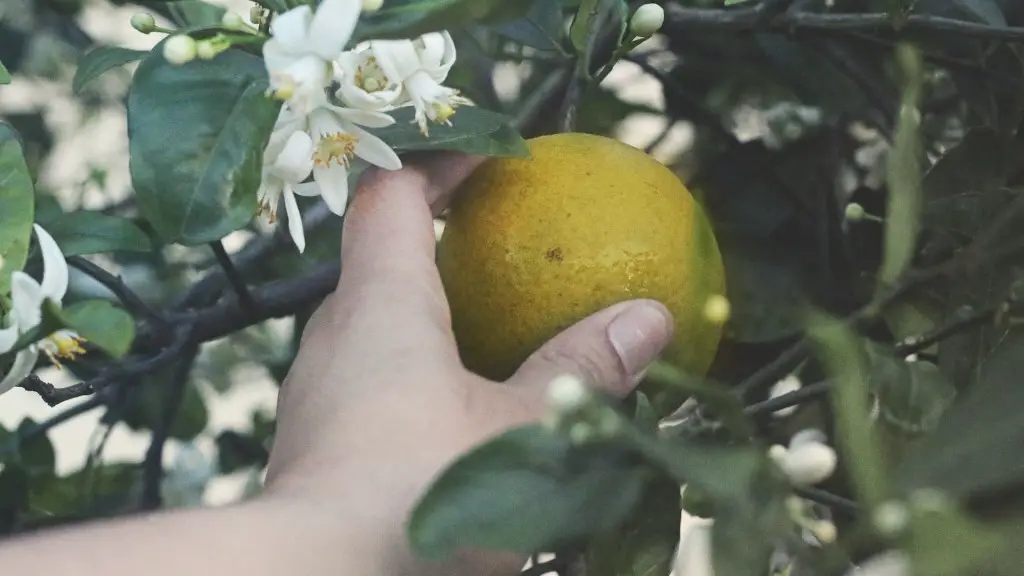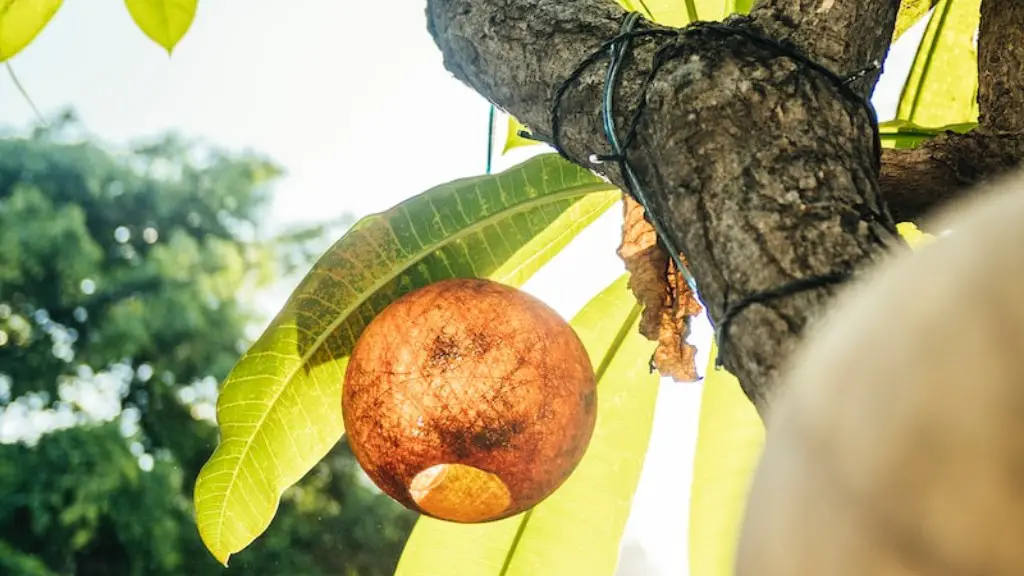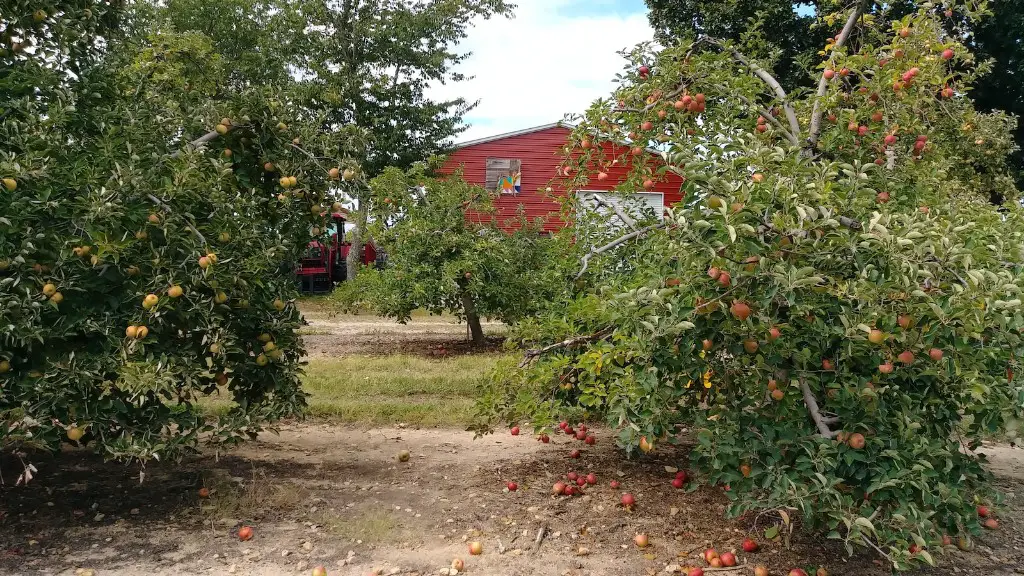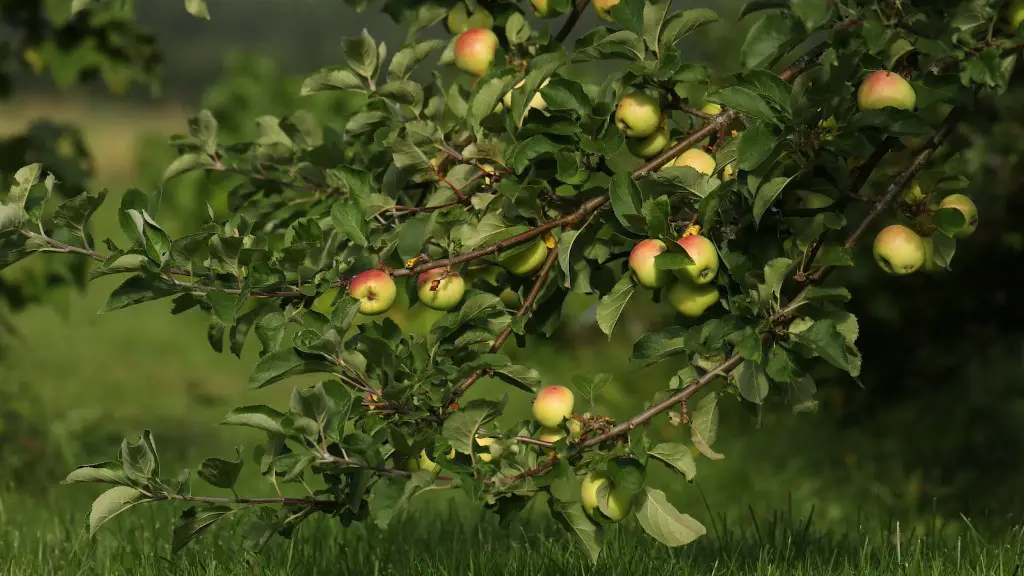If you live in a climate that is warm enough year-round, you can enjoy the benefits of fresh lemons by growing your own lemon tree outdoors. Here are a few tips on how to take care of your lemon tree to ensure that it produces a bountiful crop of juicy fruits.
First, choose a sunny spot in your yard for your lemon tree. If you live in an area with cold winters, you’ll need to plant your tree in a spot that is protected from the wind.
Second, make sure you water your lemon tree regularly. The roots of the tree need to stay moist, but be sure not to over-water as this can drown the roots.
Third, fertilize your lemon tree every few months to ensure that it gets the nutrients it needs to produce healthy fruit. You can use a commercial citrus fertilizer or make your own compost to fertilize your tree.
Fourth, prune your lemon tree regularly to encourage new growth. Remove any dead or dying branches, and trim back any overgrown branches.
By following these tips, you can enjoy fresh lemons from your own backyard for many years to come.
Watering
Lemons need a lot of water, especially when they are fruiting. Water deeply and regularly during the growing season. Allow the top few inches of soil to dry out before watering again. Mulching with organic material will help to retain moisture and keep roots cool. During the hottest months, you may need to water your lemon tree every day.
Fertilizing
Lemons are heavy feeders and need regular fertilization. Use a fertilizer high in nitrogen throughout the growing season. You can also top dress with compost or manure in early spring.
Pruning
Lemons can be pruned at any time of year. Heavy pruning is often done in late winter to encourage new growth. Pruning also helps to keep the lemon tree a manageable size.
Harvesting
Lemons can be harvested year-round. However, they are usually at their peak from late spring to early fall.
How do you keep a lemon tree healthy?
A lemon tree should be watered once a week or every two weeks, depending on the rainfall in the area or the humidity indoors. A watering schedule is important to keeping the lemon trees healthy and happy. If you’re not sure when to water the lemon trees, just check the top 2 inches of soil.
Potted lemon trees need to be watered once every 3-7 days on average. However, keep in mind that this number may change over time depending on various factors such as plant size, temperature, and humidity. Be sure to check on your lemon tree regularly to see how often it needs to be watered.
How do you take care of a potted lemon tree
Water is essential for the growth of plants, and the best way to provide water to your plants is to mimic nature. Water your plants well, letting the water drain completely before allowing the soil to dry out. This will ensure that your plants have the water they need to grow healthy and strong.
You can protect your tree and the fruit left on it from freezing by covering it with a blanket or heavy tarp on those nights where it is predicted to dip below freezing. To do this, build tripods of light lumber or PVC pipe around the trees and cover them with frost cloth or tarps on the coldest nights. This will help to keep the tree and its fruit from freezing, and will also help to protect the tree from any damage that could be caused by the cold weather.
Can you put Miracle Grow on a lemon tree?
This pesticide is effective against a wide range of pests, including aphids, mites, scale insects, whiteflies, and caterpillars. It can be used on all fruit, citrus, and palm trees.
If you have a lemon tree, you may have noticed some problems with the leaves. Here are seven common problems and how to solve them:
1. Lesions On Leaves: This is likely due to citrus canker and can be treated by pruning away affected leaves and branches.
2. Black Moldy Spots: These are sooty mold spots and are usually caused by aphids. To get rid of them, you can wash the leaves with soapy water or use an insecticide.
3. Fuzzy Gray Mold And Brown Spots: This is botrytis blight and can be treated by removing affected leaves and branches. You can also try using a fungicide.
4. Tan Spots With Dark Outlines: These are anthracnose spots and can be treated by pruning away affected leaves and branches. You can also try using a fungicide.
5. Brown Scabs: These are lemon scabs and can be treated by pruning away affected leaves and branches. You can also try using a fungicide.
6. Yellow Leaves: This is likely due to nutrient deficiency. You can try fertilizing your lemon tree with a citrus fertilizer.
7.Dropping
What does Overwatered lemon tree look like?
This is a common problem with citrus trees. They prefer infrequent, deep watering to frequent, shallow sprinklings. If you see that the leaves are yellow or cupped, or if they don’t look perky after watering, then you are giving them too much water. Cut back on how often you water them and let the roots dry out a bit between waterings.
When checking the moisture of your soil, it is important to get down to the root level. The best way to do this is to insert your finger into the soil about 3-6 inches. If the area is dry, it is time to water your tree. If the soil is still moist, wait a few more days before watering.
Can you water lemon tree with tap water
Over-watering is one of the most common ways that people kill their plants, especially citrus plants. For every citrus plant that is killed by under-watering, 200 are killed by over-watering. When watering your plants, be sure to use tap water instead of softened water, as softened water can contain sodium salts that can be harmful to your plants.
If you’re growing a citrus tree in a pot, make sure the pot is large enough to accommodate the tree’s roots. If the pot is too small, the roots will become crowded and the tree may die. A good rule of thumb is to choose a pot that’s about twice the size of the tree’s root ball.
Do lemon trees grow better in pots or ground?
Lemon trees are a popular choice for many homeowners because of their ability to produce fruit year-round. However, there are some drawbacks to growing lemon trees in containers. One issue is that they are more vulnerable to the cold and drought. While a lemon tree in the ground can take mild frost and cold, a lemon tree in a container cannot. A lemon tree in a container has a hardiness zone that is one zone higher than the USDA recommended zone. This means that in areas where the temperature dips below the recommended zone, the lemon tree will not be able to survive. Homeowners in these areas need to take special care to protect their lemon trees from the cold. Another issue with lemon trees in containers is that they are more susceptible to pests and diseases. Because they are confined in a small space, pests and diseases can spread quickly and cause serious damage to the tree. Homeowners need to be vigilant about inspecting their trees for signs of pests or diseases and treating them promptly.
Lemon trees are a popular choice for many homeowners due to their long lifespan. Most lemon trees will live for 30-50 years, with some trees even reaching 100 years old in ideal conditions. However, it’s important to note that indoor potted lemon trees tend to have shorter lifespans than trees planted outdoors in the ground. Nevertheless, a lemon tree can be a lovely addition to your home for many years to come.
Can I leave my lemon tree outside in winter
If you live in an area with cold winters, it’s important to take extra care of your citrus trees during the frosty season. Citrus trees are fairly tolerant of light frosts, but any temperature below 32°F can damage the tree. To ensure your tree’s safety, keep it inside until you’re positive that the last spring frost has passed and that the average nightly temperature is above 40°F. Once the weather warms up, you can then begin preparing to move your citrus tree outside.
If a hard freeze is on the way, there are several things you can do to help protect young citrus trees from cold damage:
1. Wrap the trunk in cloth or bubble wrap.
2. Use tarps, old blankets or plastic sheeting to wrap the tree.
3. Be sure to remove any frost or ice buildup from the tree as soon as possible.
4. Make sure the tree has plenty of water but avoid over-watering.
5. Mulch around the base of the tree to help insulate the roots.
Hope this helps!
Will a lemon tree survive outside?
Citrus in pots can be put outdoors in summer, in a sheltered sunny position, but only when temperatures increase, from mid-June until late September. Keep some fleece handy in case of sudden cold nights in early summer. Low temperatures will inhibit flowering and may cause damage or even death.
Lemon trees benefit from the nitrogen and calcium in the coffee grounds. The organic material also improves the soil tilth. Only use the coffee grounds after they have been fully decomposed in the compost pile.
Is Epsom salt good for lemon trees
If your lemon tree leaves are turning yellow, the most likely cause is a lack of magnesium in the soil. Applying Epsom Salts to the soil can help correct this deficiency. Mix 30g of Epsom Salts per litre of water (approximately 2 tablespoons), and apply it to the tree.
Down to Earth Organic Citrus Fertilizer is definitely the best lemon tree fertilizer for good reason. It’s a granular fertilizer with an NPK ratio of 6-3-3 that is applied three to four times per year, which is great for lemon trees! It also contains secondary nutrients like calcium, sulfur, zinc, and iron. All of these nutrients are essential for lemon trees to stay healthy and produce lots of delicious fruit!
Final Words
There are a few things to keep in mind when caring for a lemon tree outdoors:
– make sure the tree is getting enough sunlight; lemons need at least 8 hours of direct sunlight per day
– water the tree regularly; the soil should be moist but not soggy
– fertilize the tree every few months; citrus trees need a high-nitrogen fertilizer
– prune the tree as needed to shape it and remove any dead or diseased branches
– watch for pests and diseases; common problems include aphids, scale, and root rot
In conclusion, here are some basic tips on how to take care of your lemon tree outdoors: lemon trees prefer full sun and need at least 6 hours of sunlight per day; water your lemon tree regularly, especially during hot, dry weather; fertilize your lemon tree monthly with a citrus-specific fertilizer; and protect your lemon tree from cold weather by covering it with a frost blanket or burlap. With proper care, your lemon tree will thrive and provide you with bountiful harvests of juicy, delicious lemons!




